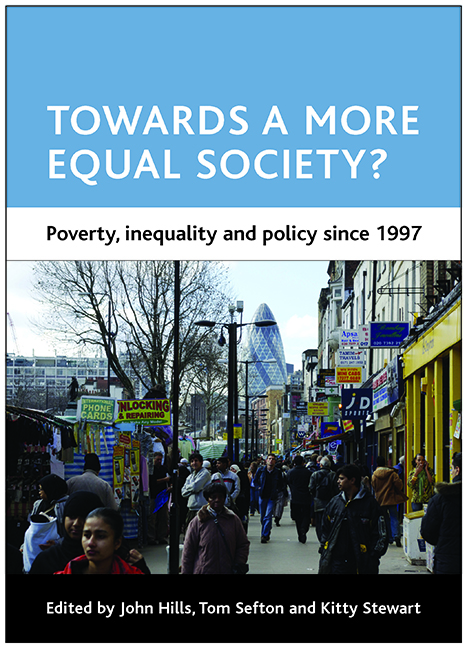one - Introduction
Published online by Cambridge University Press: 22 January 2022
Summary
Soon after it was elected in 1997, Tony Blair's ‘New Labour’ government became embroiled in a row about the implementation of cuts in benefits for lone parents that had been set in train by the outgoing administration. The decision to press ahead with the cuts prompted condemnation from those who had expected a Labour government to hold the reduction of poverty and inequality as a central aim, and led to a backbench rebellion of 47 Members of Parliament (MPs) just seven months after the 1997 General Election. In the late spring of 2008, another huge row broke out over the treatment of those with low incomes, as it became visible that the abolition of the initial 10 pence rate of Income Tax, announced the year before, was leading to losses in the pay packets of low-paid workers who were not protected by offsetting changes in the tax-benefit system. This time the backbench revolt led to an emergency announcement of increased tax allowances to come later in the year, but public opinion polls and lost by-elections suggested that huge damage had been done to the government's – and particularly the new Prime Minister, Gordon Brown's – reputation for being on the side of the poor.
These two events bracket the period that we cover in this book – one of sustained economic growth and low unemployment, which at the time of writing appears to have come to an end. Are these events symbolic of an era of missed opportunities, even betrayal? Or are they moments of aberration for a government that has made a concerted effort to counter the forces that had led to huge growth in inequality, relative poverty and other aspects of social exclusion in the 1980s and early 1990s?
Shortly after the 1997 General Election, one of New Labour's architects, Peter Mandelson, challenged the ‘doubters’ to ‘judge us after ten years of success in office. For one of the fruits of that success will be that Britain has become a more equal society’ (Mandelson, 1997, p 7). We now have evidence allowing us to examine outcomes for those 10 years – the whole of Tony Blair's premiership and Gordon Brown's period as Chancellor of the Exchequer.
- Type
- Chapter
- Information
- Towards a More Equal Society?Poverty, Inequality and Policy since 1997, pp. 1 - 18Publisher: Bristol University PressPrint publication year: 2009

